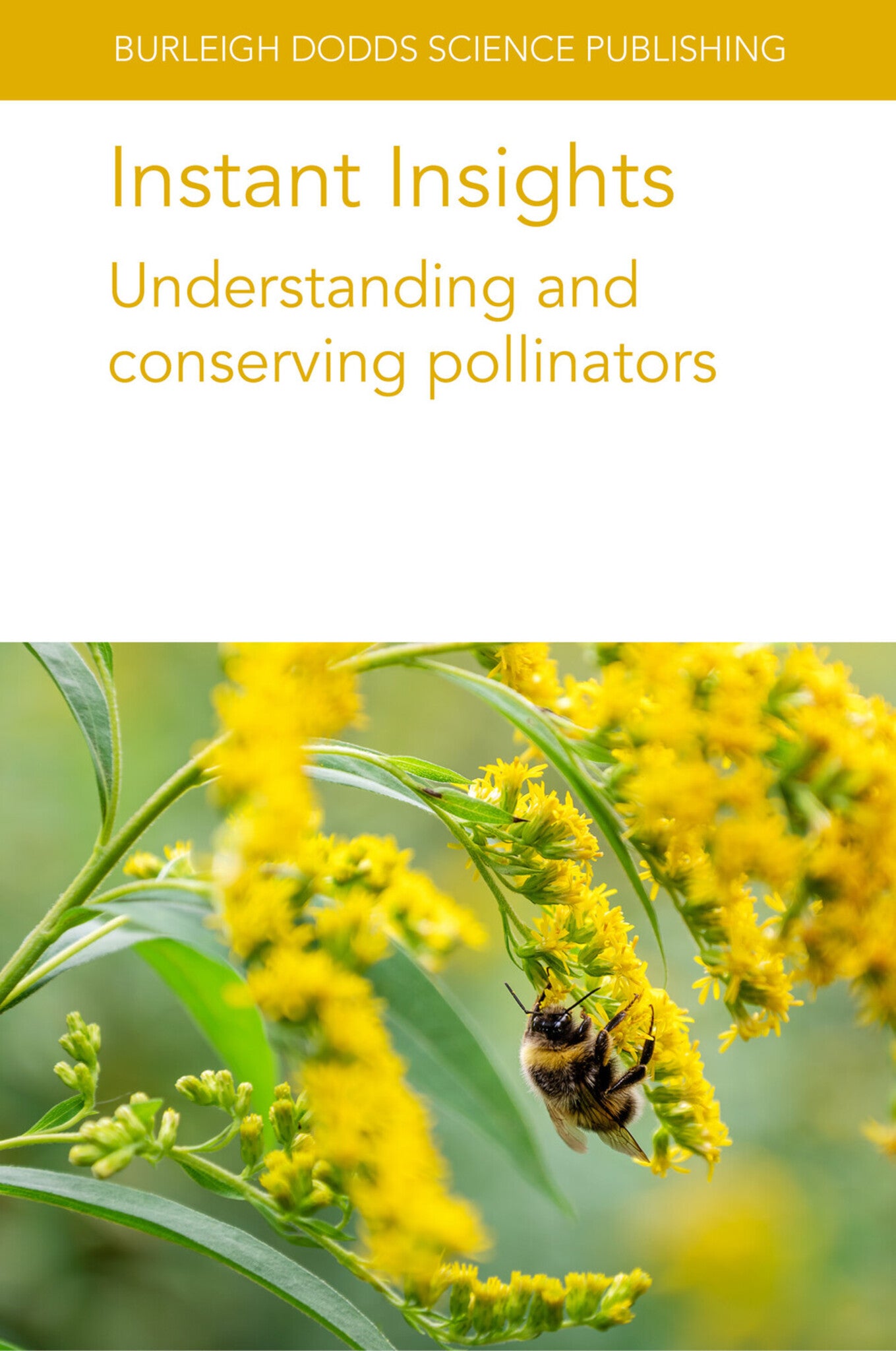We're sorry. An error has occurred
Please cancel or retry.
Instant Insights: Understanding and conserving pollinators

Some error occured while loading the Quick View. Please close the Quick View and try reloading the page.
Couldn't load pickup availability
- Format:
-
20 May 2025

This book features four peer-reviewed reviews on understanding and conserving pollinators.
The first chapter provides a brief overview on pollinators and the ecosystem services they offer, as well as the role of data collection and sharing in achieving more sustainable farming and beekeeping practices. The chapter also considers how existing data collected by farm management systems can be used to ascertain the impact of particular agricultural practices on pollinators and key pollinator services.
The second chapter summarises the variety of ways in which bee species are managed for optimal pollination of crops and harvest of honey, beeswax and other products. The chapter also reviews methods to encourage biodiversity and populations of indigenous pollinating insects.
The third chapter considers using network ecology to understand, support and enhance pollination services through farm management and integrated decision-making. The chapter also addresses how these networks can be assessed from field to national scales.
The final chapter reviews the role of habitat conservation and restoration for solitary bee species. The chapter addresses key challenges facing habitat restoration, such as changes in global temperature and precipitation, as well as the effectiveness of existing restoration projects in the European Union and North America.

SCIENCE / Life Sciences / Zoology / Entomology, Pest control / plant diseases, NATURE / Ecosystems & Habitats / General, NATURE / Environmental Conservation & Protection, BUSINESS & ECONOMICS / Industries / Agribusiness, BUSINESS & ECONOMICS / Industries / Food Industry, TECHNOLOGY & ENGINEERING / Agriculture / Agronomy / Crop Science, TECHNOLOGY & ENGINEERING / Agriculture / Sustainable Agriculture, TECHNOLOGY & ENGINEERING / Agriculture / Animal Husbandry, SCIENCE / Environmental Science, Agriculture, agribusiness and food production industries, Biodiversity, Conservation of wildlife and habitats, Sustainable agriculture, Agronomy and crop production, Organic farming, Apiculture (beekeeping)

- Chapter 1 - Using data to assess the impact of agriculture on pollinators and pollinator services: Noa Simón Delso, BeeLife European Beekeeping Coordination, Belgium; and Walter Haefeker, European Professional Beekeepers Association, Germany;
- 1 Introduction
- 2 Current data on pollinators
- 3 Farm data standardization
- 4 Data standardization in beekeeping
- 5 Data sharing in farming
- 6 Data sharing in beekeeping
- 7 Solutions to data sharing
- 8 Conclusion
- 9 Competing interests
- 10 Where to look for further information
- 11 References
- Chapter 2 - Organic and natural beekeeping, and caring for insect pollinators: Nicola Bradbear, Bees for Development, UK;
- 1 Introduction
- 2 The need for pollinators
- 3 Encouraging indigenous pollinators
- 4 Management of bees
- 5 Management of honey bees
- 6 Management of bumblebees
- 7 Conclusion
- 8 References
- Chapter 3 - Ecological network approaches for promoting pollinators in agriculture: Darren M. Evans and Fredric M. Windsor, Newcastle University, UK;
- 1 Introduction
- 2 Plantpollinator networks
- 3 Networks across scales
- 4 Increasing the completeness of pollination networks
- 5 Embedding pollination within wider agro-ecosystem networks
- 6 Next steps for pollination networks
- 7 Conclusion
- 8 Where to look for further information
- 9 Acknowledgements
- 10 References
- Chapter 4 - The role of habitat conservation and restoration in protecting pollinators in agricultural landscapes: Stephen Buchmann, University of Arizona, USA;
- 1 Introduction
- 2 Bees as pollinators
- 3 Challenges in habitat restoration
- 4 Assessing the effectiveness of habitat restoration
- 5 Case studies
- 6 Conclusion
- 7 Where to look for further information
- 8 References



